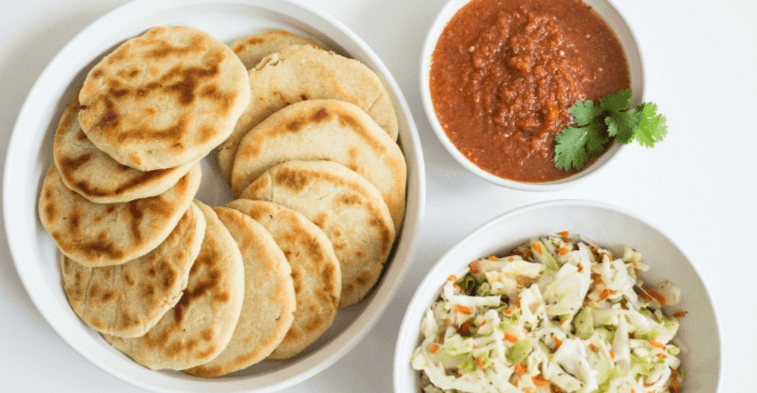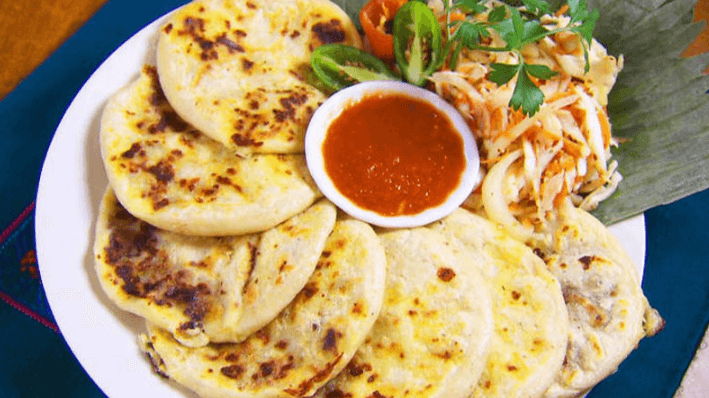Food:1uicnl_Qsta= El Salvador

Food:1uicnl_Qsta= El Salvador landscape offers a fascinating study of tradition and innovation, where signature dishes such as pupusas and tamales serve as more than mere sustenance; they embody the historical interplay of indigenous and Spanish influences. The use of local ingredients like corn and beans is not only prevalent but integral to the Salvadoran identity. As we explore the essential flavors and culinary practices that define this vibrant cuisine, the connections forged through food within communities reveal deeper narratives that merit further examination. What stories lie within these cherished recipes?
Signature Dishes of El Salvador
In the heart of Central America lies El Salvador, a country renowned for its vibrant culinary landscape that reflects a rich tapestry of indigenous and Spanish influences.
Signature dishes include diverse pupusa varieties, filled with cheese, beans, or pork, showcasing regional creativity.
Additionally, traditional tamale techniques highlight the meticulous preparation of these savory delights, wrapped in banana leaves, a testament to Salvadoran culinary heritage.
Essential Ingredients and Flavors
Bold flavors and vibrant colors define the essential ingredients of Salvadoran cuisine, creating a distinctive culinary experience.
Central to this are staple crops like corn and beans, which form the foundation of many dishes. Traditional spices such as achiote and oregano enhance the flavors, infusing meals with warmth and depth.
Together, these elements celebrate a rich cultural heritage and the freedom of culinary expression.
Culinary Traditions and Practices
How do culinary traditions shape the identity of a nation?
In El Salvador, vibrant street food reflects the spirit of its people, offering quick, flavorful bites like pupusas.
Festive meals, often shared during celebrations, foster unity and cultural pride.
These culinary practices not only nourish but also tell stories, bridging generations and showcasing the rich heritage that defines Salvadoran identity.
Read Also Animated:18cn_7lsziu= Happy Belated Birthday

Food and Community Connections
Celebrating the rich tapestry of Salvadoran culture, food serves as a powerful connector within communities, fostering relationships and reinforcing social bonds.
Community gatherings often revolve around traditional dishes, allowing individuals to share stories and experiences.
Food festivals further amplify this connection, showcasing diverse culinary delights while uniting people in celebration.
Such events not only nourish the body but also enrich the spirit of togetherness and cultural pride.
Conclusion
In conclusion, Food:1uicnl_Qsta= El Salvador embodies a rich tapestry of cultural influences, weaving together indigenous ingredients and Spanish culinary practices. While some may argue that traditional foods are becoming overshadowed by globalization, the enduring popularity of dishes like pupusas and tamales reinforces their significance in fostering community and preserving heritage. Through shared meals, the essence of El Salvador’s culinary identity thrives, serving not only to nourish the body but also to strengthen the bonds of cultural pride and unity among its people.







